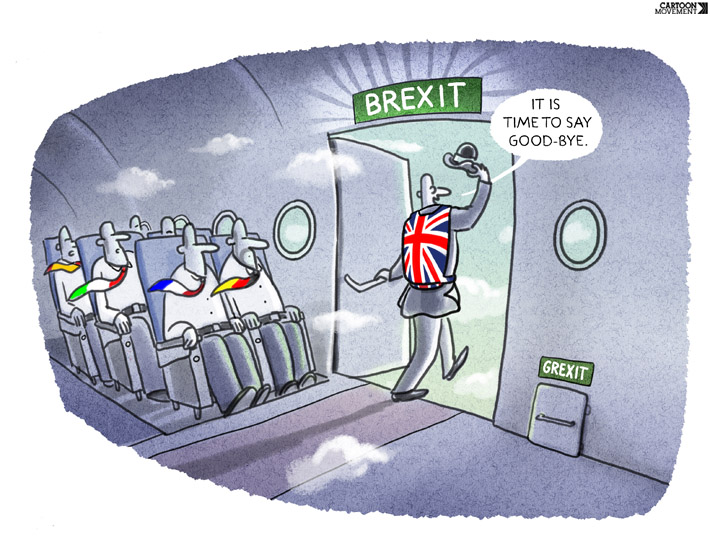
In a referendum that took place on June 23, 2016, the United Kingdom voted to exit the European Union. This has led to the continuous debate about the issue. The success or failure of Brexit will be decided by the degree of its economic implications on both the UK and EU. Presently, the central question about Brexit is the choice of the UK about the “soft Brexit” or “Hard Brexit”. Going with the soft Brexit, the UK would stay in a single market and customs union, while with hard Brexit, there will be no association with a single market and customs union, and the UK will have new agreements with other countries. The trade agreement between the UK and EU will largely depend upon how both parties carry their negotiations, as these negotiations will include many complex dialogues on different issues, including the nature of trade. The dialogues will be complicated for the UK because it has to perform the simultaneous task of untangling its ties with the EU and, at the same time, continue the dialogues with the EU for a future trade relationship. Although both parties are willing to have a positive and progressive partnership, it is significant for both parties to reach a mutually beneficial agreement as there are many politico-economic challenges for both.
Economic Implications
Since its inception, Brexit has adversely affected the UK’s economy and its political processes. The country’s economy has taken a hit, several businesses have changed their headquarters. Further, it has been analyzed that if the UK opts for a “no-deal or WTO Rules” in the long-term, the GDP in the UK will drop. There will be some moderate financial loss to UK if compared to the gains in its current EU membership. Implication of Brexit will also affect the overall growth, jobs and investment in UK. Its implications on Ireland, Scotland, and London will also be very significant as a consequence.
The economic growth of the UK has been hampered by the Brexit, and the main factor behind this is the uncertainty of events that continue to perplex Brexit watchers. As per the data of the UK government, the growth of the economy has gone down and is likely to fall in the coming years. Also, the fall in the value of pound from the day of the referendum is an essential indicator of the diminishing economic growth of the UK due to Brexit. Not only economic growth, the investment, and trade in the UK will also face several challenges as the UK will lose its status of “tariff-free trade,” and both devalued pound and “tariff-free trade status” will impact the import and export of UK. Brexit will affect the young working force of the UK as they will be constrained to fulfill the demand of “skilled workers” in the European Union market.
Apart from these, the issue of three major provinces, namely Ireland, Scotland, and London are critical as far as Brexit is concerned. The issue regarding Ireland is complex in that Northern Ireland would remain with the United Kingdom while the Republic of Ireland will be the part of the European Union, as it is an independent state. Both the states share a border. However, there is no customs border between them. Several daily travelers travel from Northern Ireland to the Republic of Ireland and vice versa. Brexit will complicate the passage of these daily travelers at several stages as they travel for work and studies on a day-to-day basis.
Scotland is willing to stay in the European Union as it believes that it would be beneficial for both Scotland and the UK. Scotland wanted to have the second referendum for the same. It has to leave the European Union as a result of Brexit, although it can apply for EU membership independently once Brexit is done. Brexit has adversely affected the financial hub London, as with the lowering of economic growth, major companies are shifting their clients to another city. London is losing its erstwhile influence as the financial nerve center of the UK.
The most crucial concern for the European Union would be tackling the growing sentiment of “exiting” the Union by other countries. If the major countries like France and Germany would choose to do the same, the Union will lose all of its strength and influence of being a supranational institution. It will lead to the gradual disintegration of the Union.
At this point, it is very significant for the UK to adopt a “positive-sum game” while continuing the process of negotiations with the European Union. It should opt for the best available deal for both the parties which would benefit them all. Taking everything into account, it could be said that the Brexit would do more harm to UK than it would affect the EU. Thus, the UK needs to adopt “an open trading relationship” than “no deal” as the latter will be destructible for both the parties.
*** The author is a research scholar at School of International Studies, JNU, New Delhi ***
![]()

